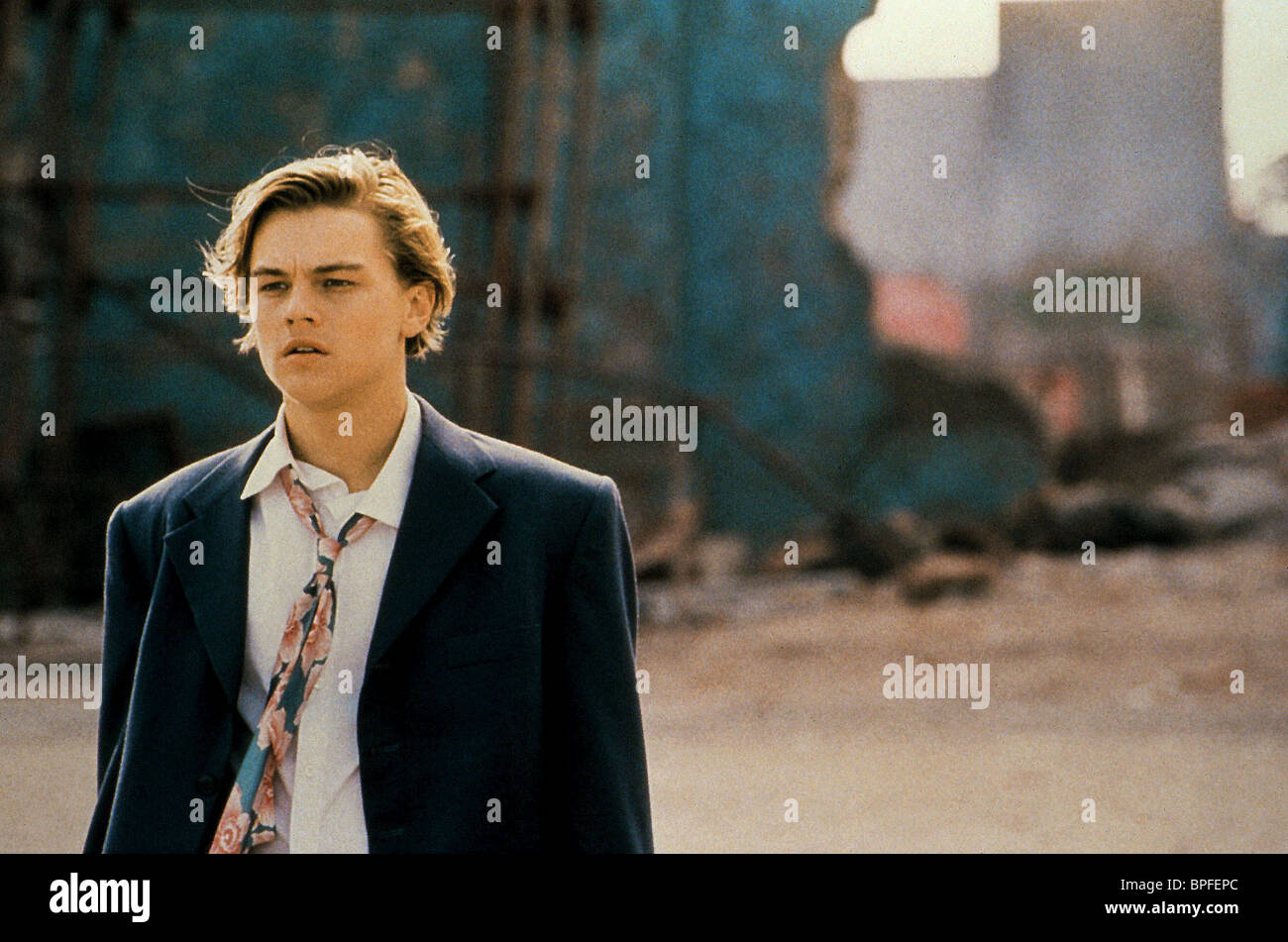Romeo And Juliet Leonardo DiCaprios Iconic Portrayal
Table of Contents
- Introduction
- Leonardo DiCaprio's Early Life and Acting Beginnings
- How Did DiCaprio Bring Romeo to Life for a New Generation?
- The Visuals of Baz Luhrmann's Romeo and Juliet
- What Made His Romeo Portrayal So Memorable?
- The Emotional Depth of Romeo and Juliet
- The Lasting Impact of Leonardo DiCaprio's Romeo
- Why Does This Romeo Still Resonate?
- What Other Roles Shaped His Path After Romeo?
When you think about classic stories given a fresh spin, there are few examples that stand out quite like Baz Luhrmann's 1996 take on William Shakespeare's "Romeo + Juliet." It was, in a way, a moment that truly captured the spirit of a generation, bringing a centuries-old tale of young, passionate affection to a modern audience with an energy that was pretty much impossible to ignore. At the heart of this vibrant retelling was Leonardo DiCaprio, who took on the part of Romeo, giving a performance that, for many, defined the character for years to come. You know, his work in this movie just seemed to stick with people.
- Vince Mcmahon Girlfriend Now
- Priyanka Chopras Film Career
- Grease Release Date
- Anne Hathaway Sons
- Jenna Jameson Age
His portrayal of Romeo was, you could say, a very big deal, especially for young people at the time. It managed to mix the traditional poetic lines of Shakespeare with a contemporary feel, making the story of two families at odds feel incredibly relevant. The film itself was a visual feast, full of bright colors and fast-paced scenes, but it was DiCaprio's ability to convey such raw feeling that really made his Romeo stand out. He brought a kind of youthful intensity to the role that felt both classic and completely new, which is that fine line a lot of actors try to walk.
This particular interpretation of the famous star-crossed lovers really did leave a mark, and a lot of that credit goes to how DiCaprio presented Romeo. He wasn't just reciting lines; he was, in some respects, living the part, showing all the heartache and joy that comes with first love. It's a performance that people still talk about, and it often gets mentioned when folks discuss his early career highlights, perhaps even setting the stage for the many interesting parts he would take on later.
Leonardo DiCaprio's Early Life and Acting Beginnings
Leonardo Wilhelm DiCaprio, born in Los Angeles, California, came into the world on November 11, 1974. His start in acting began when he was quite young, appearing in television commercials and various educational programs. You know, it's pretty common for actors to get their feet wet that way. He picked up small parts in TV shows like "The New Lassie" and "Roseanne," and then moved on to "Parenthood," which was, in a way, a stepping stone. These early experiences, you might say, helped him get comfortable in front of the camera.
His first big movie appearance came in the horror film "Critters 3" in 1991, which, honestly, isn't usually the kind of movie that makes a star. But it was his work in "This Boy's Life" in 1993, acting alongside Robert De Niro, that truly got people to notice him. That film, you could say, showed everyone he had some real talent. Later that same year, his performance in "What's Eating Gilbert Grape" earned him his first Academy Award nomination. He played a character with a developmental disability, and his portrayal was, frankly, just incredible, showing a depth that was quite remarkable for someone so young. It was clear then that he was someone to watch, a talent that was really starting to blossom.
Before "Romeo + Juliet," DiCaprio had already built a reputation for taking on complex, often challenging roles, demonstrating a range that went beyond what many might expect from a young actor. He had a way of bringing a certain sensitivity to his characters, even those facing difficult situations. This background, you see, prepared him well for the intense emotions and poetic language of Shakespeare. His early work truly laid the groundwork for what was to come, making him, in a sense, a perfect choice for a role like Romeo.
| Detail | Information |
|---|---|
| Full Name | Leonardo Wilhelm DiCaprio |
| Date of Birth | November 11, 1974 |
| Place of Birth | Los Angeles, California, USA |
| Nationality | American |
| Occupation | Actor, Film Producer |
| Years Active | 1989–present |
How Did DiCaprio Bring Romeo to Life for a New Generation?
Baz Luhrmann's "Romeo + Juliet" was a bold choice, taking a very old story and placing it squarely in a very modern setting. The decision to keep Shakespeare's original dialogue while presenting it with contemporary visuals and music was, you know, a bit of a gamble. But it paid off, largely because of how the actors, especially Leonardo DiCaprio, managed to make those classic lines feel natural and, frankly, quite powerful in this new environment. He wasn't just reciting poetry; he was, in a way, speaking with a raw emotion that transcended the period.
DiCaprio's Romeo was, in essence, a reflection of youthful passion and recklessness, something that many young people could easily connect with. He captured the impulsiveness of a young person in love, the kind of immediate, overwhelming feeling that can make you do things without thinking them all the way through. His facial expressions, his body language, and the way he delivered his lines all contributed to a Romeo that felt, you know, very real and relatable, despite the heightened drama of the story. He really brought a certain kind of vulnerability to the character, which made him feel more human.
The film's visual style, with its bright colors and fast edits, could have easily overshadowed the performances, but DiCaprio's presence was strong enough to hold its own. He conveyed Romeo's deep sorrow and his intense happiness with equal conviction. This ability to switch between such strong emotions, you see, was key to making the character believable and engaging for an audience that might have been unfamiliar with Shakespeare's work. He made Romeo a figure that viewers could truly feel for, someone whose pain and joy were almost tangible.
The Visuals of Baz Luhrmann's Romeo and Juliet
The visual presentation of Baz Luhrmann's "Romeo + Juliet" was, without a doubt, a huge part of its appeal and how it managed to reach a new audience. The film moved the setting from Verona, Italy, to Verona Beach, California, transforming the ancient feud between the Montagues and Capulets into a gang war, complete with flashy shirts and guns that looked like modern weapons but had names from the play, like "Sword" and "Dagger." This stylistic choice was, you know, pretty striking and very memorable.
Every scene was, in a way, a visual spectacle. The costumes were bright and expressive, reflecting the personalities of the characters and the overall mood of the film. The camera work was dynamic, often moving quickly and using close-ups to capture the intense emotions of the actors. This approach helped to make the classic story feel incredibly current and exciting, especially for viewers who might have found traditional Shakespearean productions a bit slow or difficult to connect with. It was, frankly, a bold new way to tell a very old story.
The production design, you might say, was also very important, creating a world that was both chaotic and beautiful. From the grand Capulet party to the gritty streets of Verona Beach, every setting added to the film's unique atmosphere. This visual richness, combined with a soundtrack that featured popular contemporary artists, created an experience that was, in some respects, completely immersive. It truly pulled people into the story, making it feel like something happening right now, even with the old language.
What Made His Romeo Portrayal So Memorable?
Leonardo DiCaprio's portrayal of Romeo really stuck with people for a few reasons, and one of the biggest was his ability to capture the raw, untamed nature of young love. He didn't play Romeo as a distant, poetic figure, but as a passionate, sometimes reckless, young person who was, you know, totally swept up in his feelings. This made the character feel incredibly real and approachable, even when speaking Shakespeare's lines. He brought a kind of immediacy to the role that was quite powerful.
His chemistry with Claire Danes, who played Juliet, was also, frankly, undeniable. Their scenes together had a genuine spark, making their connection feel very believable and, you know, quite heartbreaking. You could truly feel the intensity of their affection, which is, in a way, essential for a story like "Romeo + Juliet" to work. Their interactions felt very natural, even amidst the stylized chaos of the film. This strong connection made their eventual tragic end feel even more impactful.
Moreover, DiCaprio managed to convey the full range of Romeo's emotional ups and downs. From the deep melancholy he felt at the start, to the joyous highs of new love, and then the crushing despair of loss, he made every feeling count. His performance was, in some respects, a masterclass in showing vulnerability and strength at the same time. This emotional honesty, you see, is what truly resonated with audiences and helped to make his Romeo an iconic figure in cinema. It's almost as if he poured his whole self into the part.
The Emotional Depth of Romeo and Juliet
The emotional depth in "Romeo + Juliet," particularly as expressed through Leonardo DiCaprio's performance, is what truly gave the film its lasting power. The story, at its core, is about intense feelings: love, hate, grief, and despair. DiCaprio, as Romeo, managed to convey these powerful emotions in a way that felt, you know, very authentic and profound. He didn't shy away from showing Romeo's sensitivity, his rash decisions, or his complete devotion.
When Romeo first lays eyes on Juliet, the immediate, almost overwhelming sense of infatuation is clear in DiCaprio's eyes. It's a look that communicates a kind of destiny, a feeling that this person is the only one for him. And then, as the story unfolds, you witness Romeo's shift from a lovesick youth pining for Rosaline to someone completely consumed by a new, more profound affection. This transformation, you see, was handled with a lot of care, showing the true weight of his feelings.
Later, when tragedy strikes, DiCaprio's portrayal of Romeo's despair is, frankly, gut-wrenching. His cries of anguish, his desperate actions, and the profound sadness in his face convey the absolute devastation of losing the person he cares for most. This ability to make the audience feel Romeo's pain so deeply is, in a way, a testament to his acting prowess. He made the centuries-old sorrow of the story feel very immediate and personal, which is, you know, quite a feat.
The Lasting Impact of Leonardo DiCaprio's Romeo
The impact of Leonardo DiCaprio's portrayal of Romeo in Baz Luhrmann's film is, you know, pretty far-reaching. For a whole generation, this movie became their first introduction to Shakespeare, and DiCaprio's performance made the old language accessible and, frankly, quite cool. He turned a classical character into a sort of modern heartthrob, which helped to bridge the gap between traditional literature and contemporary youth culture. It was, in a way, a moment that redefined how many people viewed Shakespeare.
His Romeo also solidified DiCaprio's status as a leading man, not just a talented young actor. The film's commercial success and the critical attention his performance received helped to propel him into superstardom. It was, in some respects, a stepping stone to even bigger roles, like Jack Dawson in "Titanic," which came out just a year later. You could say that his work as Romeo showed the world he had the charisma and the acting chops to carry major films.
Even now, decades later, his Romeo is still talked about. It's a performance that holds up, a true example of how a skilled actor can breathe new life into a well-known character. The film itself is often studied for its unique style, but it's DiCaprio's ability to make Romeo feel so real and so deeply felt that keeps people coming back. He truly made the character his own, leaving an impression that, you know, really lasts.
Why Does This Romeo Still Resonate?
Leonardo DiCaprio's Romeo continues to resonate with audiences for several reasons, one of the most important being its timeless appeal to the experience of first love and heartache. He captured that feeling of being completely overwhelmed by affection, a sensation that, you know, pretty much everyone can remember. This raw, unfiltered emotion makes his performance feel incredibly genuine, regardless of when you watch it. It's almost as if he tapped into a universal human experience.
The film's bold, almost audacious style also plays a part. By keeping the original language but placing it in a contemporary setting, it created a unique viewing experience. DiCaprio, in this context, managed to make the poetic lines sound natural coming from a young man in a Hawaiian shirt with a gun. This blend of old and new, you see, gives the film a kind of enduring freshness that prevents it from feeling dated. It's a very clever approach to a classic story.
Finally, the sheer intensity of his portrayal is something that truly sticks with you. Romeo's passion, his despair, his quick temper – DiCaprio brought all of these aspects to the forefront with a kind of youthful energy that was, frankly, captivating. He made Romeo a figure you could truly feel for, someone whose journey, however tragic, felt very personal. This deep connection, you know, is what makes his Romeo continue to be a powerful and memorable performance.
What Other Roles Shaped His Path After Romeo?
After his memorable portrayal of Romeo, Leonardo DiCaprio's career truly took off, and he went on to select roles that, you know, pretty much solidified his standing as one of Hollywood's most respected actors. The very next year, he starred in "Titanic," which became a massive global phenomenon. His role as Jack Dawson, a charming artist who falls for a high-society woman, cemented his status as a leading man and, frankly, a global heartthrob. That film, you could say, changed everything for him.
He then began to work with acclaimed directors, taking on parts that were often complex and challenging, showing a desire to push his acting abilities. For example, his collaborations with Martin Scorsese became a significant part of his career, starting with "Gangs of New York" in 2002. He played Amsterdam Vallon, a young man seeking revenge, a part that was, in a way, very different from Romeo. This partnership with Scorsese led to several other critically acclaimed films, including "The Aviator," "The Departed," and "Shutter Island," each allowing him to explore different facets of human nature.
DiCaprio also took on roles that explored historical periods and social issues, like "Blood Diamond," where he played a diamond smuggler, and "Django Unchained," where he portrayed a ruthless plantation owner. These parts, you see, were often darker and more morally ambiguous than his earlier work, demonstrating his versatility and willingness to take risks. He continued to choose projects that allowed him to grow as an actor, eventually earning him an Academy Award for Best Actor for "The Revenant," a film that truly pushed him to his limits. His path after Romeo was, in some respects, a very deliberate journey toward becoming a truly great actor.
This article explored Leonardo DiCaprio's powerful portrayal of Romeo in Baz Luhrmann's "Romeo + Juliet," examining his early life, how he brought the character to life for a new generation, and what made his performance so memorable. It also looked at the film's visual style, the emotional depth he brought to the role, and the lasting impact of his Romeo. Finally, it touched upon the significant roles he chose after this iconic performance, showing how he continued to shape his acting career.
- Samara Weaving Movies And Tv Shows
- Guy Ritchie
- Donovan Patton Family
- Sam And Colby
- Pat Benatars Daughter

Leonardo DiCaprio's Hawaiian Shirt From Romeo And Juliet 1996

Leonardo DiCaprio's Hawaiian Shirt From Romeo And Juliet 1996

LEONARDO DICAPRIO ROMEO + JULIET ; ROMEO AND JULIET (1996 Stock Photo